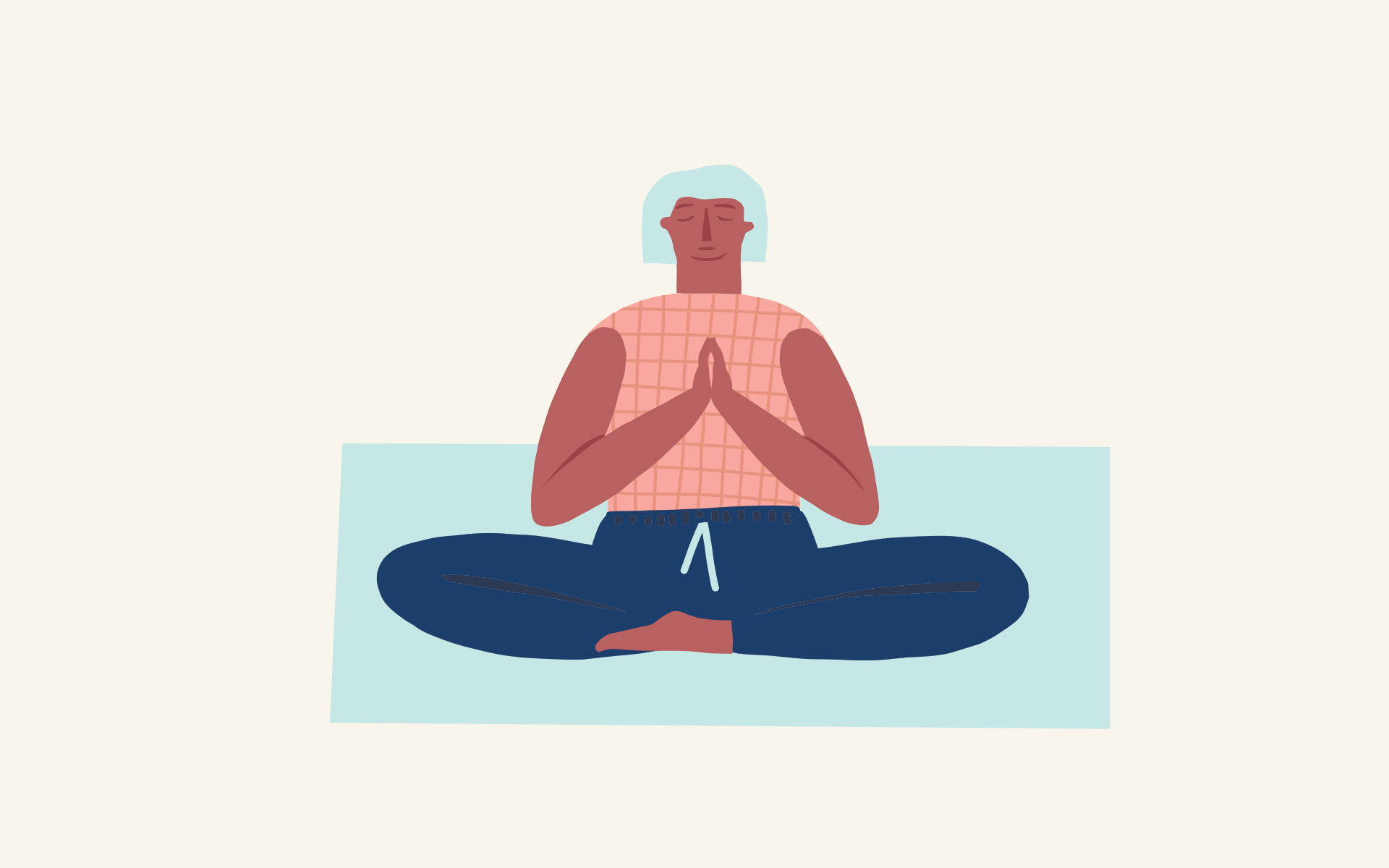Stress reduction, helping with depression, coping with illness and adversity, improved relational skills, and an ability to make better, less bias-prone decisions—all of these benefits can flow from mindfulness training. But they might all be seen like by-products of travelling along a path to deeper awakening, which flows from the recognition that nothing in life, including ourselves, is stuck in the way we habitually think.
In mindfulness practice, we train in letting go of our stories about stress and pain, learn that thoughts are not facts, and watch sensations change from moment to moment. We notice that experience is fluid, and can be perceived without taking it so personally. We learn that pain, stress, thoughts and everything else that occurs in the mind and body are not “me.”
Why “Me” Always Changes
So what kind of “me” is there? When we ask ourselves this question, most of us will come up with a list of identities—perhaps a name, a profession, a family role, a nationality. Already there are problems with this—as Jon Kabat-Zinn puts it, your name is “just a sound that your parents gave to you when you were born.” It may be applied consistently, for convenience, throughout a lifetime, but what it refers to certainly shifts over the years. I am not the same “me” who had my name as a baby.
The composition of our bodies is in continual flux. Over the last few weeks, your epidermis (the layer of skin that covers your body) has completely regenerated. Cells in the stomach are replaced after about five days, while our livers regenerate every year. Our entire skeleton is replaced every ten years. The brain changes all the time, too. Over the last fifteen years, researchers have learned that neural shifts occur as a consequence of events in the mind, body, and life. An experienced taxi driver will develop an unusually large hippocampus (a part of the brain associated with learning, memory, and spatial processing), while a skilled musician’s fine motor cortex will reflect their years of practice. Even learning to juggle over the course of a week produces observable neural changes in the brain. Many people believe that the core of their “self” resides in the brain, but if we never have the same brain from one moment to the next, how could there be such a core?
What Makes Up “Me”?
The evidence from neuroscience research suggests that what feels like “me” is in fact an infinite number of changing aspects of mind, brain and body, working in harmony to produce a sense of coherence and agency from the events of life. The experience of being “me” is a projection—a bit like when a film appears on a screen from the projection of different colours. This projected “me” assumes responsibility for actions that actually occur as a fluid interchange of indefinable aspects of mind,
body, brain, and environment.
There are heavy costs to this assumption. You don’t have to get depressed to witness how close identification with thoughts, emotions, and sensations creates suffering. Every time we turn a thought into a fact in our minds by calling it “mine,” we become blinded to the reality that it is influenced (and often biased) by myriad causes and conditions in our past and present. When we identify with a thought, it becomes difficult to see its biases, and we become trapped in a virtual version of life, doomed to self-righteousness, paranoia, negativity, or other patterns of distorted thinking. Similarly, when we identify with an emotion, we become prisoners of our moods. And when we get caught up with our bodies, we feel at their mercy, struggling with a journey through life that inevitably proceeds towards infirmity and breakdown.
Why Losing Control Can Make You Happier
Relief is attainable by shifting perception and letting go of the falsehood that we are in complete control. By recognizing the conditioning that deeply affects our lives, we can start to give ourselves—and others—a break. At the same time, realizing we are multi-faceted beings that change from moment to moment, in flow with an ever-shifting biological, psychological, social, and environmental context, we can start to practice riding with the changes. We can hold our beliefs and opinions lightly, rather than construct blindingly fixed identities from them.
As soon as we are aware of thoughts and sensations arising in experience, rather than getting caught in attempts to grasp or reject them, a glimmer of space emerges between the events of our lives and our reactions to them.
As soon as we are aware of thoughts and sensations arising in experience, rather than getting caught in attempts to grasp or reject them, a glimmer of space emerges between the events of our lives and our reactions to them. In this space, reactions can become responses, and tension and resistance can fall away, along with the stress they generate. Life becomes a dance with the world, rather than a war against it; a flow, rather than a struggle. By dropping our tight identification with what comes up in our minds, bodies and lives, we can start to feel better. As a famous meditation teacher once put it: “If you let go a little, you will get a little happiness. If you let go a lot, you will get a lot of happiness. And if you let go completely, you will be completely happy.”
You can watch a video of me speaking for Action For Happiness about this and other mindfulness-related themes here. And below is a practice you can try to train in resting in the changing flow of moment-to-moment experience.
Mindfulness Practice: Resting in the Flow of Experience
12 Minute Meditation: Resting in the Flow of Experience With Ed Halliwell
Being human is like flowing as a river—many moving droplets make up the stream. The river changes all the time, yet there is continuity as it follows well-worn grooves through the landscape. A river cannot suddenly shift its direction, just as we humans tend to follow a course set by past events and patterns. Yet, the more we become aware of how the flow occurs and the grooves are followed, the more we can relax into the ride. As we see more clearly, we also become more able to steer our way skilfully through the current. A good way to begin is to practice resting in the flow, as in this meditation.
- Settle into a posture for sitting meditation, feeling the connection of your body to the floor, cushion, or seat. At any time during this practice, especially if you feel disconnected or disembodied, come back to this sense of groundedness, anchoring your experience.
- Begin paying attention to breathing, noticing how each breath—indeed, each moment of each breath—is a unique experience, not the same as the previous one or the next. Notice how the breath happens without you controlling it—your breath is happening within you; “you” are not choosing to breathe. Know, too, that all of the automatic processes of the body—oxygenation of the cells, blood flow, heartbeat, and so on—are happening in the same way. As best you can, relax into this experience.
- Open awareness now to the whole body. As sensations rise into consciousness and pass through, recognize that they are all impermanent, continually transforming in intensity, location, and quality. Let them be experienced, moment by moment, and allow them to pass through, as best you can, without attachment or rejection. Recognize too that the physical constituents of your body are in flux—skin is being shed, cells are growing and dying, some neural connections are strengthening, others are weakening.
- Now bring awareness to thoughts. With a friendly interest, observe the patterns of thinking that are running through the mind, like clouds passing across the sky of the mind, making up its weather. Like the weather, these patterns are always changing, depending on atmospheric conditions. Realize that the thoughts you had a year ago, five years ago, a decade ago—each of which may have seemed extremely important back then—are now merely memories, and that thoughts appearing in the mind right now will share that fate.
- Finally, open up your mindfulness to every aspect of conscious experience—sensations, sights, sounds, tastes, smells, and thoughts. Let go into the space within and around you, remaining alert and present to whatever comes. Allow the play of experience to happen by itself, resting in the flow, moment by moment. When you notice attention wandering to a particular place, acknowledge the wandering and open out to the whole panorama of experience once more.
This post was adapted from Into The Heart of Mindfulness, by Ed Halliwell, published by Piatkus. Download a set of 14 guided audio meditation practices from Ed’s books here.
read more
A 7-Minute Guided Meditation to Embrace Fear
Loch Kelly guides a short meditation to welcome any difficult emotions that may arise during this challenging time.
Read More
An Election Day Meditation
Follow along as Rhonda Magee guides us through a S.T.O.P. practice for focused awareness. The invitation is to be kind to yourself, take a conscious breath, and gently relate to thoughts, emotions, and sensations that arise.
Read More








